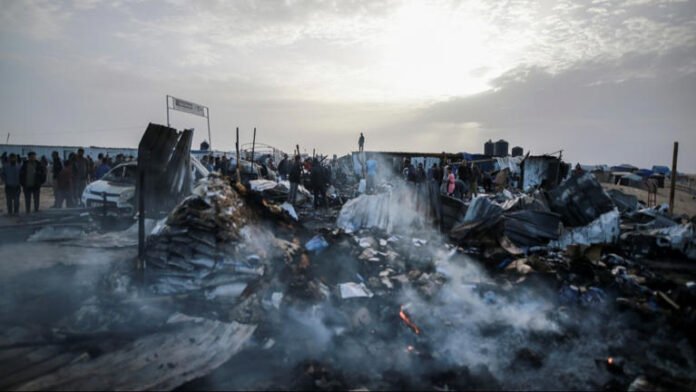Recent events in the Gaza Strip have once again laid bare the devastating consequences of violence, as Israeli Prime Minister Benjamin Netanyahu publicly acknowledged a “tragic mistake” following an airstrike on Rafah that claimed the lives of 45 Palestinian civilians. The admission, though rare in its candor, underscores the profound human cost of armed confrontation and the urgent need for accountability and reconciliation in the pursuit of lasting peace.
The tragedy in Rafah serves as a stark reminder of the human toll of the Israeli-Palestinian conflict, which has plagued the region for decades, exacting a heavy price on both sides. As the dust settled and the true scale of the devastation became apparent, Netanyahu’s acknowledgment of error offered a fleeting moment of introspection in the midst of turmoil and grief. It was a recognition of the irrevocable loss suffered by innocent civilians caught in the crossfire of geopolitical tensions and historical grievances.
However, the admission of a “tragic mistake” by Netanyahu does little to assuage the anguish of those who have lost loved ones or to address the underlying root causes of conflict in the region. While accountability is a crucial step towards healing and reconciliation, it must be accompanied by concrete actions aimed at preventing similar tragedies in the future and charting a path towards a just and equitable resolution of the Israeli-Palestinian dispute.
The airstrike on Rafah underscores the urgent need for renewed efforts to de-escalate tensions and revive diplomatic dialogue between Israeli and Palestinian leaders. The cycle of violence perpetuated by retaliatory strikes and counterattacks only serves to deepen the divide and prolong the suffering of innocent civilians on both sides. It is incumbent upon all parties involved to prioritize the preservation of human life and to work towards finding peaceful solutions to the complex challenges facing the region.
Moreover, the international community must play a proactive role in facilitating dialogue and brokering meaningful negotiations between Israeli and Palestinian authorities. The decades-long stalemate in the peace process has only served to entrench entrenched positions and perpetuate cycles of violence. Now more than ever, concerted diplomatic efforts are needed to break the impasse and pave the way for a just and lasting peace in the Middle East.
Netanyahu’s acknowledgment of a “tragic mistake” offers a glimmer of hope that genuine accountability and introspection are possible even in the heat of conflict. However, words alone are not enough to address the profound human suffering unleashed by violence and bloodshed. Concrete actions are needed to ensure that tragedies like the one in Rafah are not repeated and that the voices of those affected are heard and respected.
In the aftermath of the airstrike on Rafah, let us not lose sight of the human faces behind the headlines – the mothers, fathers, and children whose lives have been forever altered by the ravages of war. Their stories serve as a potent reminder of the urgent need for empathy, compassion, and solidarity in the face of adversity. Only by acknowledging the human toll of conflict and working together to build a more peaceful and just world can we honor the memory of those who have been lost and ensure a brighter future for generations to come.

